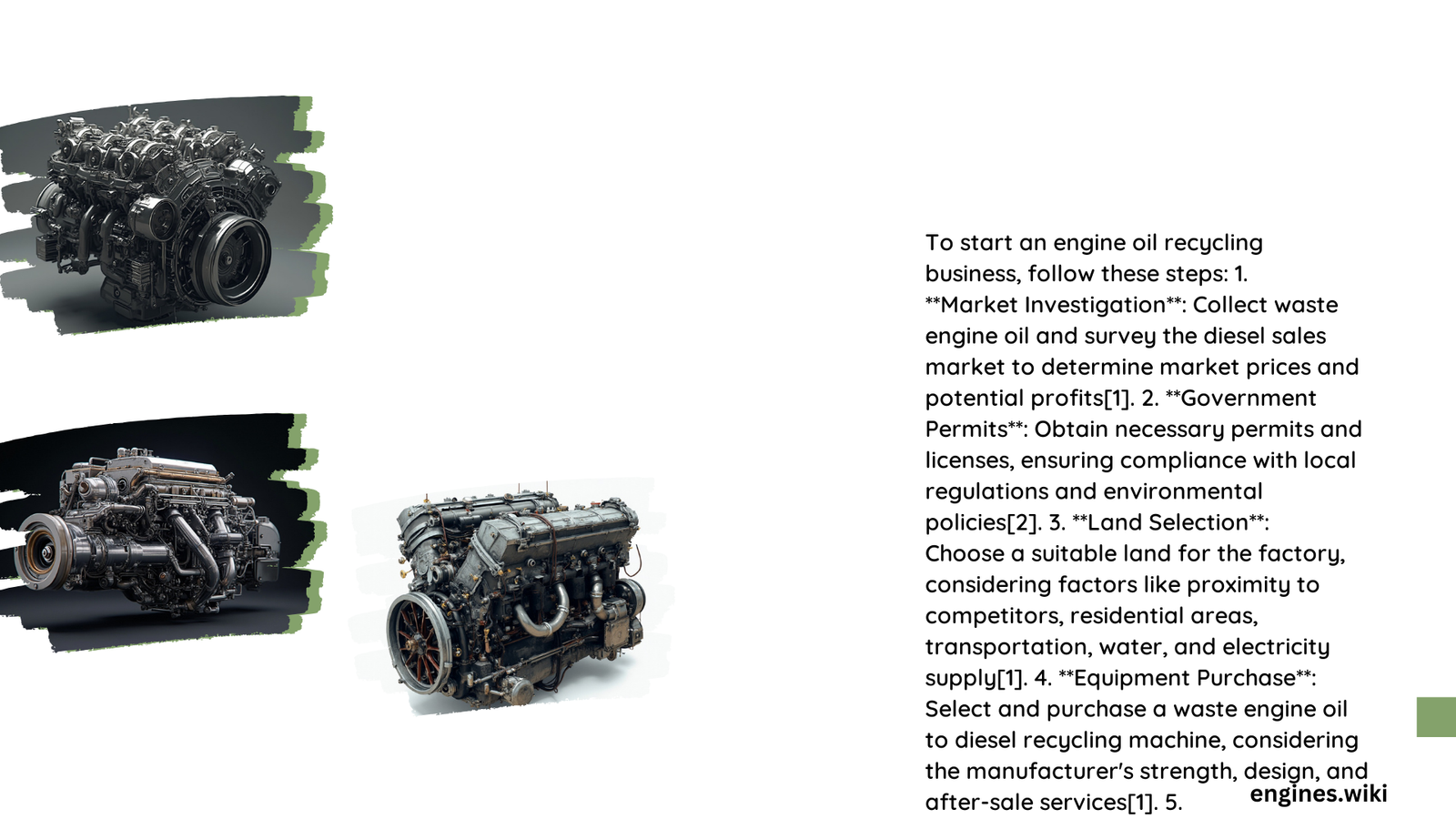The engine oil recycling business represents a critical intersection of environmental sustainability and economic opportunity, transforming potentially hazardous waste into valuable resources through advanced technological processes. By collecting, processing, and re-refining used motor oil, entrepreneurs can create a profitable venture that simultaneously reduces environmental pollution and conserves natural petroleum resources.
What Makes Engine Oil Recycling a Viable Business?
How Does the Oil Recycling Process Work?
Engine oil recycling involves a sophisticated multi-stage process that transforms used motor oil into reusable products:
Collection and Initial Separation
- Collect used oil from automotive shops, industrial facilities, and individual generators
- Use specialized tanks with temperature-controlled environments
- Implement precipitation techniques to separate initial impurities
Technical Separation Stages
| Stage | Process | Key Objective |
|---|---|---|
| Dewatering | Heating and separation | Remove water content |
| Filtration | Multi-layer filtering | Eliminate particulate matter |
| Demineralization | Chemical treatment | Remove inorganic materials |
| Distillation | Thermal separation | Create refined oil fractions |
What Equipment is Required?
Essential equipment for an engine oil recycling business includes:
- Collection tanks with temperature control
- Industrial filtration systems
- Distillation apparatus
- Chemical treatment units
- Storage facilities for processed oil
- Transportation vehicles
What Are the Economic Advantages?
Revenue Streams
- Selling re-refined base oil
- Providing collection services
- Generating alternative fuel products
- Offering waste management consulting
What Regulatory Considerations Exist?
Compliance is crucial in the engine oil recycling business:
- EPA regulations
- State-level waste management laws
- Environmental protection standards
- Occupational safety requirements
How to Establish Market Credibility?
Strategies for building trust:
- Obtain necessary certifications
- Demonstrate transparent processing
- Showcase environmental impact metrics
- Develop partnerships with automotive businesses
What Investment is Needed?
Initial investment considerations:
– Equipment: $100,000 – $500,000
– Facility setup: $50,000 – $250,000
– Operational costs: $20,000 – $50,000 monthly
– Marketing and compliance: $10,000 – $30,000 annually
Environmental Impact Metrics
- One gallon of recycled oil saves 2.5 quarts of lubricating oil
- Prevents contamination of approximately 1 million gallons of water
- Reduces carbon emissions by significant percentages
Potential Challenges
- High initial capital requirements
- Complex regulatory landscape
- Technology maintenance
- Market fluctuations in oil prices
Recommended Business Strategies
- Start with local automotive partnerships
- Invest in advanced recycling technologies
- Develop multiple revenue streams
- Focus on environmental marketing
Conclusion

The engine oil recycling business offers a compelling opportunity for entrepreneurs passionate about environmental sustainability and technological innovation. By understanding the technical, economic, and regulatory landscape, businesses can create meaningful impact while generating profitable returns.
Reference:
– https://www.epa.gov/recycle/managing-reusing-and-recycling-used-oil
– https://www.denveroil.co/5-stages-in-oil-recycling
– https://www.purepathtech.com/recycling-and-refining-method-of-waste-engine-oil
